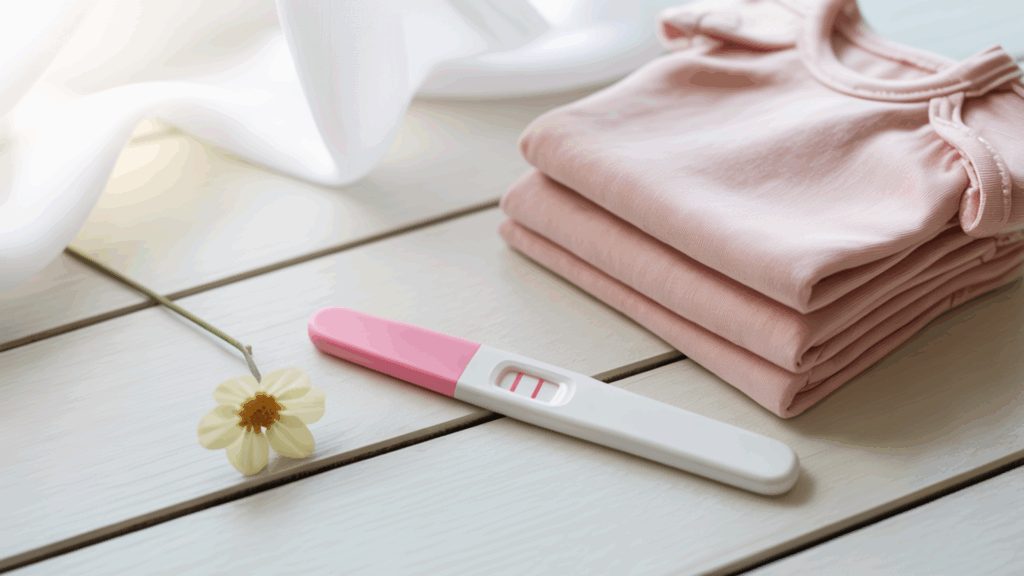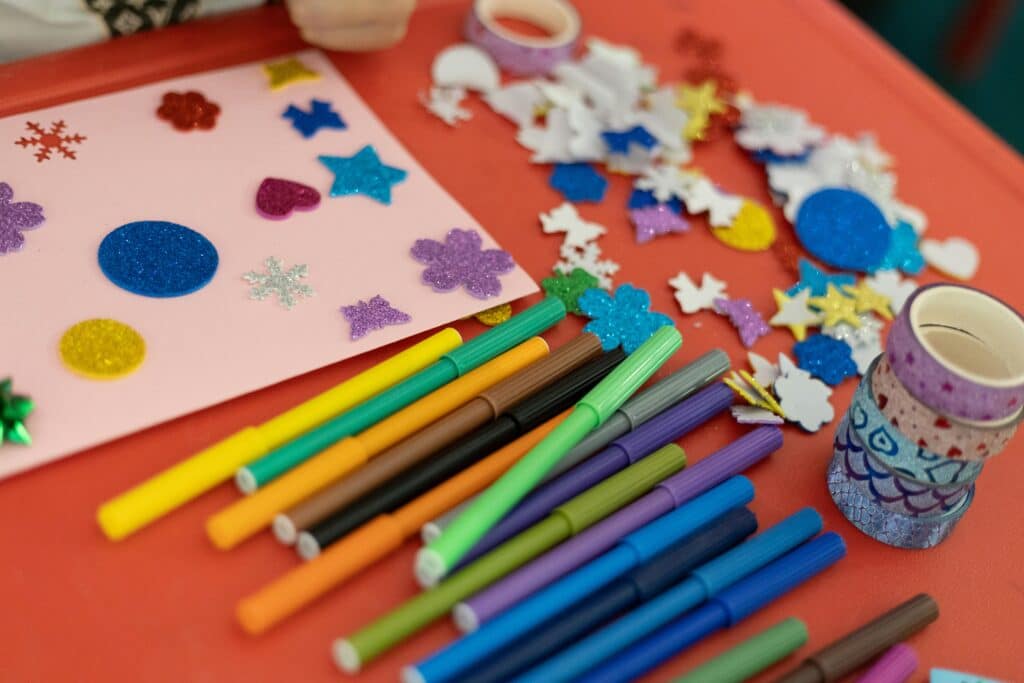Those two lines on a pregnancy test can bring a rush of emotions. Excitement, fear, joy, and maybe a bit of panic might all hit at once.
Many women feel overwhelmed about what to do next after seeing positive results.
You’re not alone in this feeling. Finding out you’re pregnant starts a new chapter with lots to think about and plan for. This blog walks you through what to do after a positive pregnancy test.
From confirming your pregnancy with a doctor to making essential lifestyle changes, we’ll cover what matters most in those first few days and weeks.
Let’s look at how to start this pregnancy path with confidence.
What Does a Positive Pregnancy Test Mean?

A positive pregnancy test shows level of the hormone hCG (human chorionic gonadotropin) is in your body. This hormone forms when a fertilized egg attaches to the uterus wall. Home tests can find hCG in urine about 12-14 days after conception.
Most home tests are 99% accurate when used correctly. Still, false positives can happen due to medication, certain health issues, or test failure.
The test doesn’t tell you how far along you are or if the pregnancy is healthy. It simply signals that conception has likely occurred. For full confirmation, a doctor visit with blood tests or an ultrasound is the next important step.
What to Do After a Positive Pregnancy Test

A positive pregnancy test is a significant milestone, often bringing a mix of excitement, anxiety, and questions about what to do next. Taking clear and thoughtful steps can help you navigate the early days of pregnancy with confidence and care.
The following are a few steps to take if you are confused about what to do after a positive pregnancy test:
1. Confirm the Pregnancy with A Second Test
After receiving a positive result, use a second pregnancy test to confirm accuracy, especially if the first result was faint or unclear. Home pregnancy tests detect the hormone hCG, which rises in early pregnancy.
If the second test is also positive, you can be more confident in the result. If there’s still uncertainty, consult your doctor for a blood test to confirm.
2. Take a Moment to Reflect on Your Feelings
Pause to process the news and acknowledge your emotions, whether they are joy, surprise, anxiety, or uncertainty. Pregnancy is a major life event, and it’s normal to experience mixed feelings.
3. Share the News with Your Partner or Trusted Person
When you’re ready, share your news with your partner or a trusted friend or a family member.
Choose a private, comfortable setting to talk openly about your feelings and expectations.
Honest communication can help you both process the news together, offer support, and start planning for the future. If you don’t have a supportive partner, confide in someone you trust.
4. Schedule an Appointment with Your Doctor or Midwife
Book an appointment with a healthcare provider as soon as possible. Your doctor or midwife will confirm the pregnancy, review your medical history, and discuss next steps for prenatal care.
Early medical attention ensures you receive the right guidance on nutrition, supplements, and lifestyle adjustments and helps identify any potential health concerns early on.
5. Start Taking Prenatal Vitamins
Begin taking prenatal vitamins right away, even before your first appointment, if possible. Look for vitamins containing folic acid, iron, calcium, and vitamin D, as these nutrients are vital for your baby’s development and your health.
Your doctor can recommend the best prenatal vitamin for you and advise on any additional supplements needed based on your health profile.
6. Review and Adjust Your Diet and Hydration
Evaluate your current eating habits and make adjustments to support a healthy pregnancy. Focus on a balanced diet rich in fruits, vegetables, whole grains, lean proteins, and healthy fats.
Increase your water intake, as hydration is crucial for your health and your baby’s development. Avoid foods that pose risks during pregnancy, such as unpasteurized cheeses and certain fish.
7. Avoid Harmful Substances and Habits
Eliminate or reduce exposure to substances that could harm your pregnancy, such as alcohol, tobacco, recreational drugs, and certain medications. If you need help quitting, seek support from your healthcare provider.
Also, avoid exposure to environmental toxins and limit caffeine intake. Making these changes early helps protect your baby’s growth and reduces the risk of complications.
8. Plan Your First Prenatal Visit and Tests
Coordinate with your healthcare provider to schedule your first prenatal visit, typically within the first 8-10 weeks of pregnancy.
At this appointment, you’ll discuss your medical history, undergo basic health checks, and plan essential prenatal tests, such as blood work and ultrasounds.
Early prenatal care is key for monitoring your health and your baby’s development throughout pregnancy.
9. Begin Tracking Your Pregnancy and Symptoms
Start a pregnancy journal or use an app to track your symptoms, milestones, and questions for your doctor. Monitoring changes in your body, such as nausea, fatigue, or mood swings, helps you stay informed and prepared.
Tracking also allows you to notice patterns, remember important dates, and actively participate in your prenatal care by sharing accurate information with your provider.
Helpful Tips for Your First Trimester
The first three months of pregnancy can feel tough as your body adjusts to major changes.
Morning sickness, tiredness, and mood swings might hit hard during this time. Having some practical tips on hand can make these weeks more bearable.
Found your answer to what to do after positive pregnancy test, lets take a look at the tips for first trimester.
- Rest when needed: Your body is working overtime. Take naps when you can and try to get at least 8 hours of sleep each night.
- Eat small, frequent meals: This can help with nausea. Try having 5-6 mini-meals instead of 3 big ones.
- Find your food triggers: Notice which foods make you feel sick and which seem to help. Bland foods like crackers often work well.
- Stay hydrated: Drink water throughout the day, even if you don’t feel thirsty. Try adding lemon or fruit if plain water turns you off.
- Wear comfortable clothes: Your body may change faster than you expect. Loose-fitting clothes with stretchy waistbands can help.
- Move gently: Light exercise like walking or swimming can boost your mood and energy. Just don’t push too hard.
- Track your symptoms: Note what makes you feel better or worse to spot patterns.
- Be kind to yourself: Growing a baby is hard work. It’s okay to not feel great or to need more support.
Wrapping It Up
We hope that this blog has answered your question about what to do after a positive pregnancy test. Taking those first steps after a positive pregnancy test sets you up for a healthier pregnancy.
Remember that self-care matters just as much as doctor visits and proper nutrition. Listen to your body, rest when needed, and don’t hesitate to ask for help.
The first trimester may bring challenges, but it’s just the beginning of an amazing process. With each passing week, you’ll learn more about your changing body and growing baby.
Trust your instincts and build a support system that works for you. From healthcare providers to family and friends, surrounding yourself with caring people makes all the difference.
















